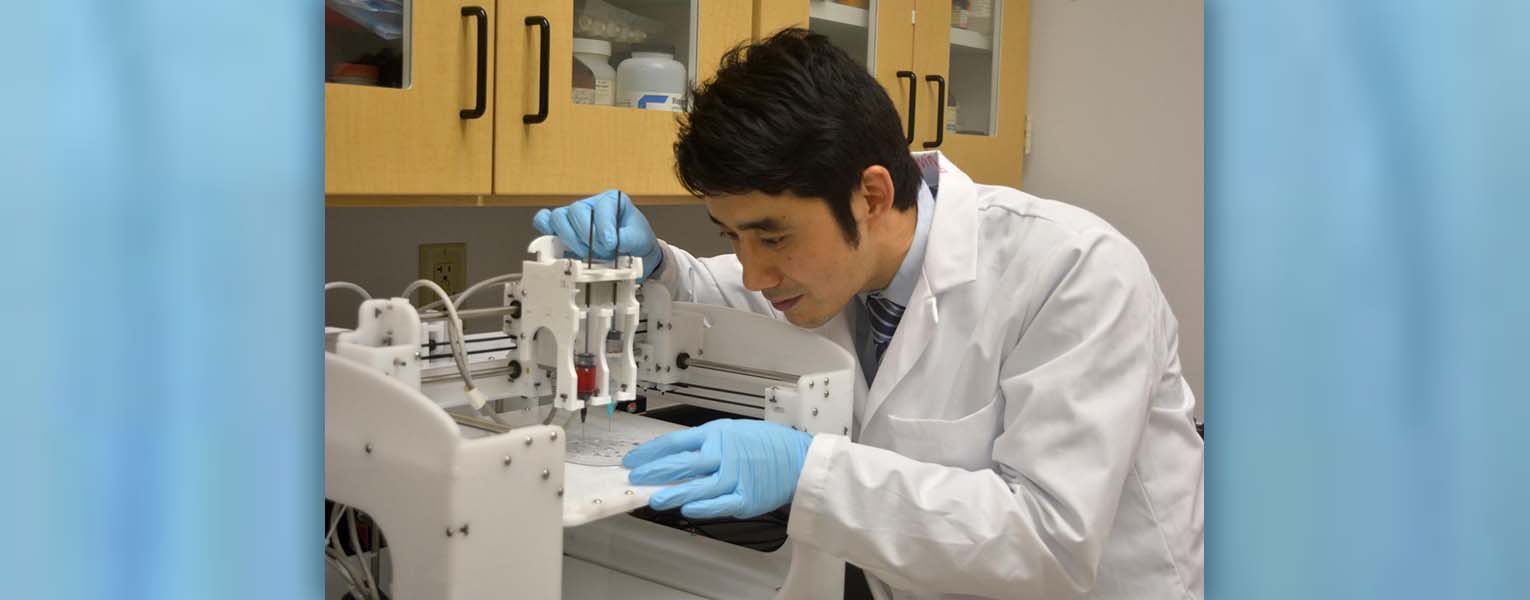12/31/2022
A New Polymer Patent
FAU Researcher Earns a New Patent
By Chris Quirk
Yunqing (Kevin) Kang, Ph.D., recently earned a patent for a new flexible synthetic material that shows potential for innovative biomedical uses, such as skin regeneration, bone filler and bone regeneration.
Kang, an associate professor in the department of ocean and mechanical engineering in the College of Engineering and Computer Science, invented the new polymer material, PXDDA, which is a mixture of xylitol, a substance sometimes used as an artificial sweetener, and dodecanedioic acid, a chemical found in antiseptics and plastics.
He’s bullish on the variety of ways PXDDA could be employed. “One idea would be for skin regeneration,” he said. “You could make the PXDDA into a film for that purpose.” Another possibility is for bone repair after a break, or from bone decay due to cancer. “PXDDA can be made into porous scaffold-like structure,” Kang said. “It could be used in bone reconstruction, as a placeholder while a bone is healing. And by adding ceramic, for example, into the polymer, it would have the mechanical strength to act as a bone filler.”
Creating PXDDA is relatively simple, according to Kang, and it can be synthesized in the lab in a matter of hours, without the use of complex procedures. The patent applies both to the new PXDDA material itself and the method of its manufacture.
PXDDA is made from natural materials, which makes it highly desirable for biomedical applications, as it is nontoxic and biocompatible for use in tissue, Kang said. In addition, PXDDA has an innate elasticity that can be dialed up or down, depending on the ratio of xylitol used in the production process.
The new compound is also biodegradable—so it will decay safely—and proteins or therapeutic agents can be added to it, further suiting it to biomedical uses.
If you would like more information, please contact us at dorcommunications@fau.edu.
